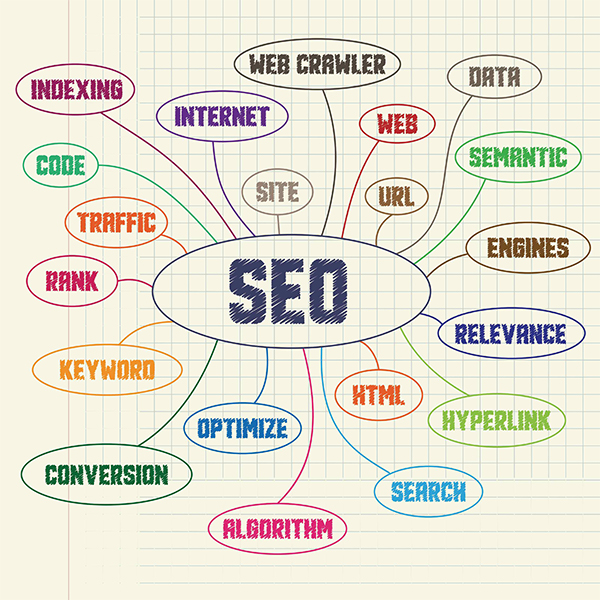People are usually keen to know how much will SEO cost them and what exactly are they getting for their money’s worth. The truth is complex, as it is the SEO industry itself. There’s no ‘one size fits all’ type of solution. In my humble opinion, that is the most honest answer one can receive. “There are no quick fixes”, would be my favourite though. But why? Surely, there are so many SEO specialized businesses out there, most of them promising the ‘first pager’ in no time. And their services seem to be fairly affordable considering the obvious advantages coming out of search engine prominence. Well, that’s exactly where the catch is.
As in any other hyped-up industry of its time, SEO and digital marketing are no different in terms of unrealistic expectations and sense of urgency coming from the client base and the consequent surge in ‘snake oil’ traders satisfying mostly subjective tendencies of being ‘up there’ and with the latest ‘must have’ under the belt. Combination of these two could not be more different from the actual reality of how SEO works. On the consumer’s end, each website is as unique as the next and some industries are more competitive both online and in a particular geographical area. Therefore, its competitors require completely different strategies.

For instance, SEO strategy towards a locally based landscaping business could not be more different then to a health insurance industry largely existing within and depending upon highly competitive and congested online market. In Ireland, an average monthly search for keywords ‘health insurance’ is 4,400, whilst ‘landscaping Dublin’ only generates 720 inquiries ( Source: GoogleAdwords, Data generated on 29th of June 2016). Consequently, a suggested bid, based on the costs-per-click (CPCs) that advertisers in the Irish market pay for a keyword ‘health insurance’ is €4.93, whilst ‘landscaping Dublin’ stands at €1.31. Although the both values are estimated, the picture is quite clear. So how on earth can anyone offer the same SEO package to both clients in the above example? The truth is fairly simple though; lot of SEO bundles, particularly from the ‘solely online’ companies from across the globe, usually include a task list that look fairly impressive on paper but is actually filled with quick, easy to do operations done by automated software. Our advice – meet your SEO person, explain what is special and unique about your business first hand. Get them to know you and get to know them.

While it is quite tempting to use ‘€99 a month’ type of services, especially if one doesn’t know how SEO works, it is most likely that a business owner will only put in danger all the previous work that went into the website’s online presence. Typically for these types of SEO “services” which are not based on genuine, relevant content, there is indeed an initial improvement in ranking as Google sees a big increase in the number of backlinks to the website. It doesn’t know yet what is the quality of those links. Customer is happy with the results, not questioning the process which actually consist of automated applications or ‘false traffic’ generators via link directories, purposely set-up false blog networks and automated spam comments. Only when Google gets back to assess the rank-worthiness of those links, the drama starts. Google usually just penalises the website without warning, or reasoning, by dropping its ranking to abyss, in the process nullifying the positive, honest work too. The blame game, change of tone, ignored emails and contract terminations usually closely follow. This doomed relationship is nicely described in a blog by William Jones. On the opposite spectrum of things, one of the main principals of a good, honest, Google favoured SEO strategy is relevant, well-written and linked content that puts consumer in front. Increasingly complex Google algorithms, together with a rapid development of Artificial Intelligence, in matter of fact, only allow the massive-scale application of a simple, common sense – by putting the value on content that is beneficial to its consumers. Once again, content is the king!
SEO Copywriting
Therefore, in its core, SEO isn’t that complicated, once it’s understood that people come before search algorithms, or efforts to trick them in order to boost ones SEO ranking. We have plenty of evidence suggesting that Google algorithms are getting so complex and powerful that tendencies to deceive them will be considered a waste of time anyway. Time and money better spent on writing the relevant content. Which is beneficial to everyone. So, how is it done? Google is measuring the authority and relevance of the page. As with most other things, authority of a certain content is measurable by the amount of trustworthy links pointing towards its direction. The relevance is based on several factors, including where and how often one uses certain words in that piece of content.
Copywriting is the art and science of creating content that prompts the consumer to either buy a product, subscribe to a list, goes for a trial, or take some other action that will benefit the business. A copywriter is someone who understands people, knows what the audience likes, and chooses the words that will appeal to them. The headline, words, phrases, sentences, and paragraphs used in the content have to persuade readers to take a specific action. SEO copywriting, in addition, also require a substantial technical acumen and ever-developing technology awareness.
That skill takes time, talent, research and above all – lot of hard work.
Google only loves you when everyone else loves you first.
― Wendy Piersall
